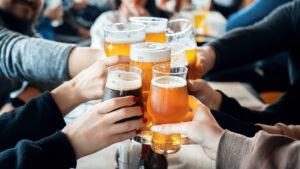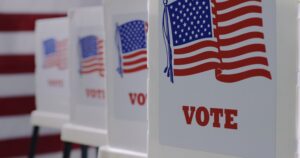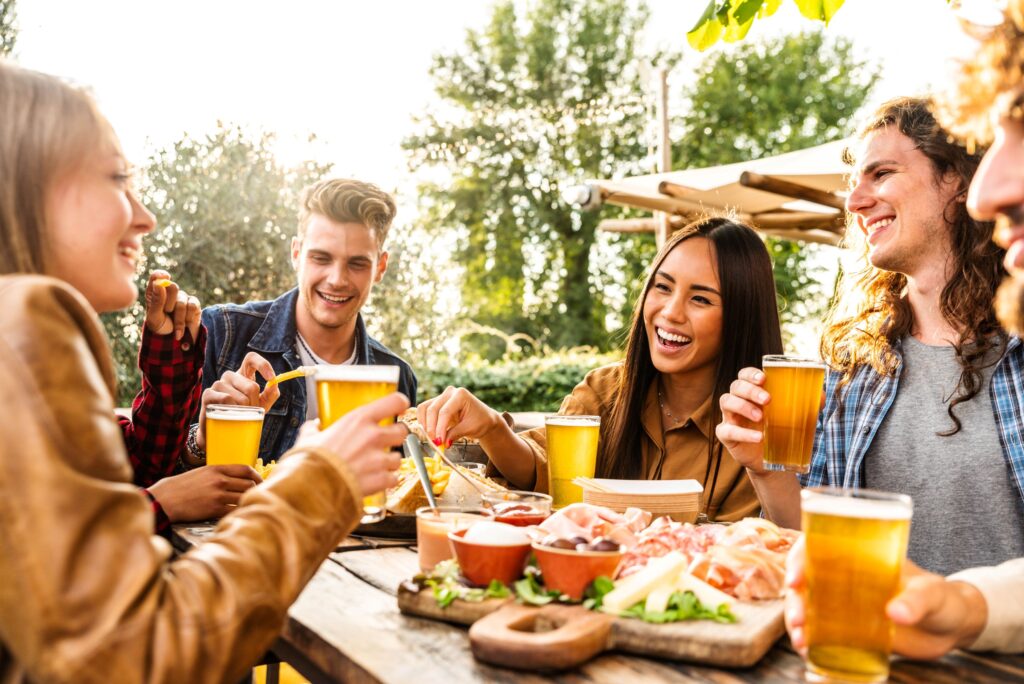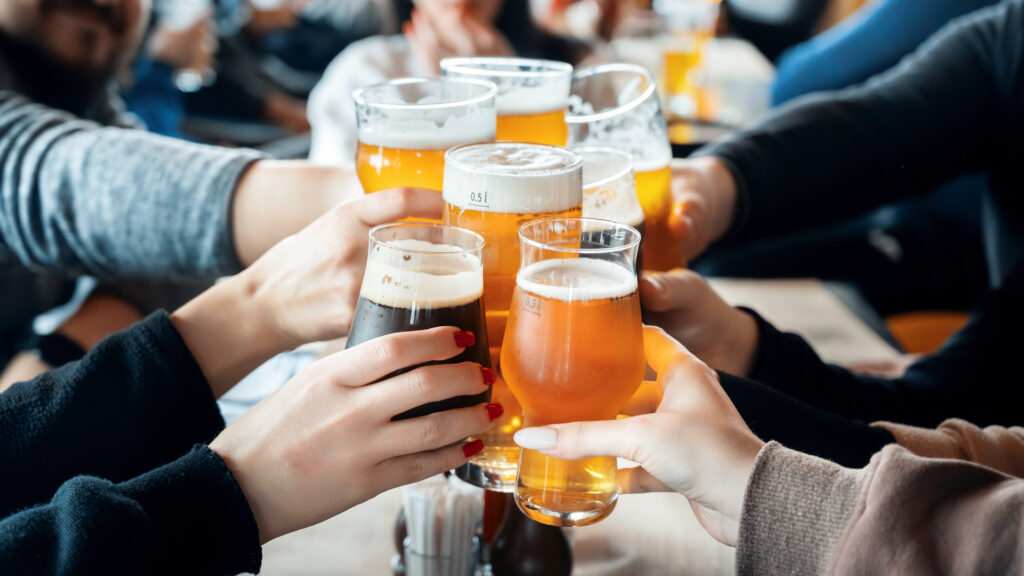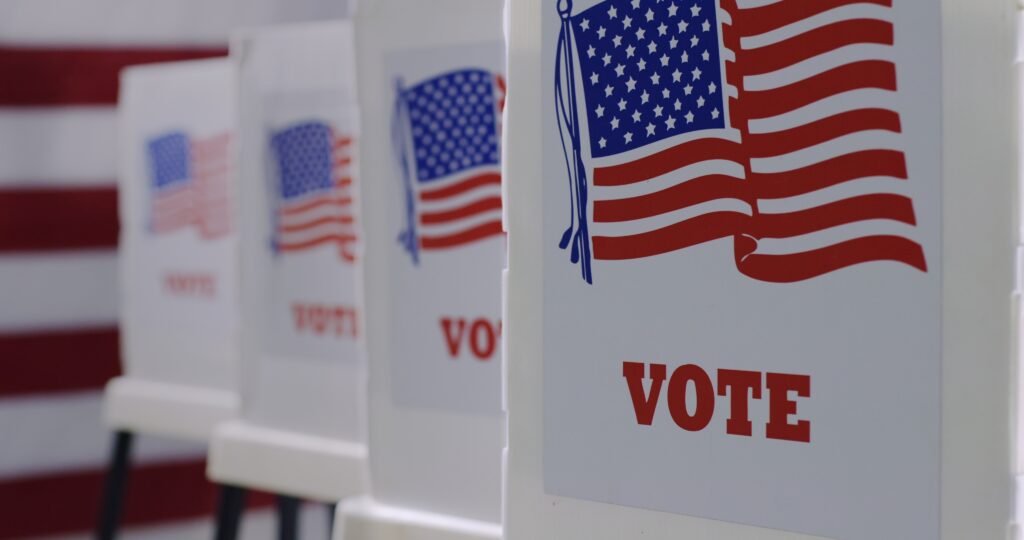As Attitudes Change, Brewers Remain Committed to Responsible Consumption

by Bill Young, Senior Director of Health Policy & Regulatory Affairs
For over one hundred and sixty years, the Beer Institute, the oldest trade association representing the beer industry, has maintained the same message: beer and liquor are not the same and should be treated differently. Recent conversations by public health advocates have renewed interest in what amount of alcohol is safe to consume, and the beer industry is once again having to illustrate to the public and lawmakers that beer is unique from vodka, whiskey, gin, rum or tequila.
The average alcohol content of a beer is less than 5% alcohol by volume (ABV), while the average ABV of spirits is more than 36%. Brewing beer is different from distilling liquor, and the brewing process is generally more expensive. Since the end of Prohibition, the U.S. government has recognized that beer, wine and spirits are not the same and taxed them at different rates because they are made and consumed differently.
The 2020-2025 Dietary Guidelines for Americans recommend, “Adults of legal drinking age can choose not to drink or to drink in moderation by limiting intake to two drinks or less in a day for men and one drink or less in a day for women when alcohol is consumed. Drinking less is better for health than drinking more. Some adults should not drink alcohol, such as pregnant women.”
The Beer Institute, its member companies, nationwide prevention partners, wholesalers and retail businesses in local communities want everyone to drink in moderation and brewers have invested heavily in the growing category of low- and no-alcohol drinks. Further, we join in educating the public on the potential dangers of alcohol abuse and preventing underage drinking. From helping retail businesses prevent underage alcohol sales to educating college students about the dangers of overconsumption or encouraging legal-age consumers to use alternative transportation when consuming alcohol, the Beer Institute’s members contribute significantly to preventing underage drinking and other alcohol abuse.
Many of these efforts are highly visible. Initiatives like “Let’s Keep Talking,” “SoberRide,” “TiPS” and “Responsibility Has Its Rewards” are just a handful of efforts our brewers and beer importers work on every day:
- “Let’s Keep Talking” and “Family Talk” help parents talk to their teens about drinking. Research has shown that parents are the single most important influence on their children’s decisions to drink or not, and these resources help parents have those conversations.
- “SoberRide” is a program operated during holiday periods by the Washington Regional Alcohol Program. Founded in 1982, the nonprofit is an award-winning public-private partnership working to prevent drunk driving and underage drinking in the Washington, D.C.-metropolitan region. It may best be known to area residents for the organization’s popular free safe ride service for would-be drunk drivers, SoberRide®.
- “TiPS” is the foremost training program in the country for servers and sellers of alcoholic beverages. The program transfers skills to stop underage purchases and intervene when consumers are nearing unsafe impairment levels.
- The “Responsibility Has Its Rewards®” campaign promotes traffic safety, positive fan behavior, responsible alcohol consumption and the designated driver program at sports and entertainment facilities. The campaign is run by the TEAM Coalition with support from member organizations including the Beer Institute, the nation’s largest brewers, NHTSA – the U.S. Department of Transportation’s National Highway Traffic Safety Administration, state offices of highway safety, professional and collegiate sports, entertainment facilities, concessionaires, stadium service providers, distillers and broadcasters.
At the heart of our involvement in these responsible drinking efforts are a few rational core drinking principles, which, when followed, help preserve the ability we enjoy each day to enjoy a cold, refreshing beer.
Beer Institute Core Responsible Consumption Messages
- Consume alcohol beverages in moderation.
- We encourage drinking that follows the moderate consumption guidelines set in the Dietary Guidelines for Americans (DGAs), 2020-2025, and support preserving this guideline in the 2025-2030 DGAs. The DGAs recommend: “Adults of legal drinking age can choose not to drink or to drink in moderation by limiting intake to two drinks or less in a day for men and one drink or less in a day for women when alcohol is consumed. Drinking less is better for health than drinking more. Some adults should not drink alcohol, such as pregnant women.”
- Understand and keep track of how much alcohol you are consuming.
- We encourage consumers to know how much alcohol is in their beer or other alcohol beverages. TheDGAs state: “For the purposes of evaluating amounts of alcohol that may be consumed, the Dietary Guidelines define[s] drink equivalents. One alcoholic drink equivalent is defined as containing 14 grams (0.6 fl oz) of pure alcohol. The following count as one alcoholic drink equivalent: 12 fluid ounces of regular beer (5% alcohol), five fluid ounces of wine (12% alcohol), or 1.5 fluid ounces of 80 proof distilled spirits (40% alcohol).”
- Make informed decisions about the alcohol beverages you consume, including the differences between the types, sizes and alcohol content of alcohol beverages in the market.
- Don’t consume alcohol beverages on an empty stomach.
- Food slows the absorption rate of alcohol beverages. If you consume alcohol beverages, eat food before or while drinking. Also, stay hydrated (with water or other non-alcohol beverages) when consuming alcohol beverages.
- Discuss any concerns about alcohol beverage consumption with your healthcare provider.
- Some people should not consume alcohol beverages at all. Examples include but are not limited to those under 21, pregnant women, or people with a medical or family condition or history of concern. Any person who has concerns about consuming alcohol should consult with their healthcare provider.


